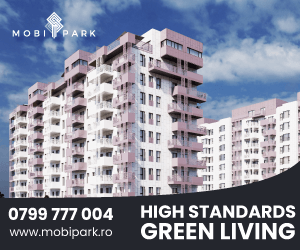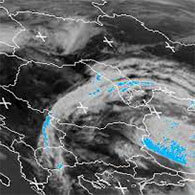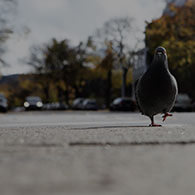MAE Participarea ministrului afacerilor externe Luminița Odobescu la Seminarul privind Uniunea Europeană și politica de extindere
MAE:Participarea ministrului afacerilor externe Luminița Odobescu la Seminarul privind Uniunea Europeană și
27 Nov, 2023 12:16
ZIUA de Constanta
 1001
Marime text
1001
Marime text
 1001
Marime text
1001
Marime text
27 noiembrie 2023
Comunicat de presă
Participarea ministrului afacerilor externe Luminița Odobescu la Seminarul privind Uniunea Europeană și politica de extindere
Participarea ministrului afacerilor externe Luminița Odobescu la Seminarul privind Uniunea Europeană și politica de extindere
Ministrul afacerilor externe Luminița Odobescu a participat luni, 27 noiembrie 2023, la deschiderea seminarului privind Uniunea Europeană și politica de extindere, cu titlul Necessary And (Im)Possible: What The Eu Really Thinks About Enlargement, eveniment organizat de think-tank-urile European Council for Foreign Relations și GlobalFocus Center, cu sprijinul Ministerului Afacerilor Externe.
În intervenția sa, ministrul afacerilor externe a prezentat poziţia României, de susţinere a procesului de extindere a Uniunii Europene, cu precădere în contextul actual marcat de crize suprapuse atât în plan regional cât şi internaţional. În context, a evidențiat faptul că procesul de extindere reprezintă o investiţie geostrategică pentru menţinerea şi dezvoltarea păcii, stabilităţii şi prosperităţii în Europa valorilor democratice comune.
Şeful diplomaţiei române a subliniat, totodată, poziția României favorabilă continuării accelerate a procesului de extindere a UE, bazat pe meritele proprii ale candidaţilor, în paralel cu procesul instituţional intern necesar pentru a pregăti Uniunea să primească noi membri.
În context, ministrul Luminiţa Odobescu a reiterat sprijinul pentru adoptarea, până la finalul acestui an, a deciziilor necesare deschiderii negocierilor de aderare cu Ucraina şi Republica Moldova, în conformitate cu realizările remarcabile ale celor doi candidaţi recunoscute de către Comisia Europeană prin evaluările pozitive publicate la 8 noiembrie 2023.
Totodată, şeful diplomaţiei române a reiterat sprijinul pentru avansarea parcursului european al Balcanilor de Vest, în conformitate cu metodologia extinderii, precum şi necesitatea ca opţiunea pro-europeană strategică a partenerilor din Balcanii de Vest să fie asumată de aceştia în baza promovării şi aplicării valorilor europene, cu precădere în contextul amenințărilor asimetrice la adresa regiunii, ca efect al agresiunii Rusiei împotriva Ucrainei.
Redăm, mai jos, transcriptul discursului susținut de ministrul afacerilor externe Luminița Odobescu în deschiderea evenimentului:
Good morning,
Your Excellencies,
Distinguished guests,
Ladies and gentlemen, dear friends, dear colleagues,
It gives me a great pleasure to address this distinguished audience on such a timely and challenging topic as the EU Enlargement.
I thank the European Council for Foreign Relations and Global Focus for their active engagement in the current debates. The stakeholders, academia, civil society, think-tanks and policy-makers are our partners in finding the most appropriate solutions to be able to advance enlargement, in difficult times. And special thanks to the National Bank of Romania for this beautiful location.
Ever since Russia launched its brutal war of aggression against Ukraine, the world has ceased to be a safe place. We also witnessed the Middle East rising conflict and worrying humanitarian situation on the ground. Insecurity, radicalism, migration, the economic situation, climate change are all interconnected. All these bring their fair share of challenges to us.
All these overlapping crises lead us to only one conclusion: we all need to remain focused and united towards preserving stability, security, our freedoms and our long standing set of values and principles.
The European perspective of both the Western Balkans and of our Eastern partners is the only sound option for long-term peace, stability and prosperity. I believe that nobody should be left behind. Neither the Western Balkans countries nor our Eastern partners, Ukraine, Republic of Moldova and Georgia.
We cannot afford to leave them in the sphere of aggressive actors, particularly now, when democracy is on edge and security in the region is very fragile.
Dear colleagues,
Against the backdrop of the ongoing military aggression of the Russian Federation against Ukraine, in the strategic neighbourhood of the EU, a strong common understanding inside the Union took shape: EU enlargement should be re-dynamized as a strong part of the EU tool-box to properly answer unprecedented and dramatic geopolitical developments.
Together, we have come to restate that “enlargement is a geostrategic investment in peace, stability and prosperity.”
This message was unequivocally sent by the European leaders in Granada, as well as by the European Commission in the latest Enlargement Package, a historic moment, as the first such package to include an evaluation for our three Eastern Partners – Ukraine, the Republic of Moldova and Georgia – which last year embarked upon a European membership path.
It is the same message that is being relayed to our partners in the Western Balkans, as well – they belong to the European family.
In this context, the recent Enlargement Package as a whole is a key input to the advancement of the enlargement policy, based on the candidates’ merits, while the individual country reports offer to each enlargement partner the necessary guidance on the priorities of actions for the short and medium term future.
Granted, we all know that EU membership does not happen overnight, but for instance, the progress achieved by Ukraine and the Republic of Moldova since the submission of their respective applications has been remarkable – especially during a time of full-blown war, with particularly dramatic consequences.
Romania, you all know, pays a special attention to the European perspective of Western Balkans region as well.
I recently completed a three days visit to the Western Balkans, covering Albania, North Macedonia and Montenegro.
I was there not only to reiterate our strong support for their European path, but also to put forward further concrete proposals from our side, with the view of securing solid and irreversible achievements in many accession negotiation areas, decisive for meeting the requirements of EU membership.
I was extremely pleased to see that my interlocutors from all three capitals expressed a firm commitment to their European future. They reiterated their political willingness to continue to implement the necessary benchmarks, paying attention also to the quality and sustainability of the reforms. At the same time, they expressed their hope for a strong and visible political message from the EU and member states, in recognition of their efforts.
The main message I conveyed to them was that, despite the inherent frustration and difficulties along the way, the European path is worth every effort. At the end of the day, this process of EU integration has transformative power across their entire societies and its concrete benefits will soon start being felt by every citizens. And for that, we all need to do more for a proactive and positive communication to the public opinion in the Western Balkans that is necessary in order to maintain the citizens’ support for the European integraton process. To do so, we should also continue to use the various fora of regional and sub-regional cooperation in order to deploy an integrated set of political, economic and operational instruments in support of the Western Balkans.
Dear friends,
A few remarks on the various aspects of the current debate on the future of Europe, enlargement and institutional matters:
Firstly, in December, we need to act courageously and take the political decisions our partners expect. Then engage without hesitation in a difficult process that will remain rules and merits based throughout.
We are not talking in terms of “geopolitical” versus “merits”. Is is true that the geopolitical arguments in favor of enlargement are even stronger today than they were 20 years ago. But enlargement is not only about geopolitics. Our Union is, first and foremost, a community of shared values, principles and norms. Political will, European strategic orientation and assuming EU values is even more relevant today, as new challenges have emerged.
Secondly, on a wider note, this debate is neither about enlargement versus EU internal track. We see them as complementary.
We see EU enlargement and the debate on institutional reforms as parallel processes. We pursue to make our Union stronger. Enlargement and reform can and should advance without preconditions, at their own pace, following their own mechanisms and rules. Both processes – enlargement and enhancing the EU’s capacity to act – are poised to make our Union a more relevant and geopolitical actor, both in our strategic neighbourhood and on the world stage.
Thirdly, enlargement is a process beneficial to the EU and its current member states. As such, I am confident that an enlarged EU has the potential to be a stronger and more relevant actor on the global world.
It is true that these are complicated times we live in. But we should stand our ground. EU citizens and citizens of our enlargement partners expect us to act in a resolute manner to respond to their main concerns. On enlargement per se and on many other instances, we need to show them that we are ready to move from declarative approaches to real work and decisions for the benefit of the Union and our like-minded partners – and this is what we need to do.
This is why Romania firmly supports adopting in December the decision for the opening of the accession negotiations with R. Moldova and Ukraine. We also consider that Georgia should continue to enjoy our support in order to advance on its European path, and at the same time we fully support advances of the European path of our Western Balkans partners.
These reflections are anything but easy. They require thorough analysis – so, the more we engage in looking at all the relevant dimensions, the better we will be equipped to understand and internalise both the opportunities and the challenges that emerge. But forging a common understanding on all the complex topics on our agenda and reaching common decisions will benefit us all.
We are ready to do so, to help and assist all our partners in the neighborhood, by all available methods, in order to achieve our common goal: a 30+ stronger and more prosperous European Union for the generations to come.
În intervenția sa, ministrul afacerilor externe a prezentat poziţia României, de susţinere a procesului de extindere a Uniunii Europene, cu precădere în contextul actual marcat de crize suprapuse atât în plan regional cât şi internaţional. În context, a evidențiat faptul că procesul de extindere reprezintă o investiţie geostrategică pentru menţinerea şi dezvoltarea păcii, stabilităţii şi prosperităţii în Europa valorilor democratice comune.
Şeful diplomaţiei române a subliniat, totodată, poziția României favorabilă continuării accelerate a procesului de extindere a UE, bazat pe meritele proprii ale candidaţilor, în paralel cu procesul instituţional intern necesar pentru a pregăti Uniunea să primească noi membri.
În context, ministrul Luminiţa Odobescu a reiterat sprijinul pentru adoptarea, până la finalul acestui an, a deciziilor necesare deschiderii negocierilor de aderare cu Ucraina şi Republica Moldova, în conformitate cu realizările remarcabile ale celor doi candidaţi recunoscute de către Comisia Europeană prin evaluările pozitive publicate la 8 noiembrie 2023.
Totodată, şeful diplomaţiei române a reiterat sprijinul pentru avansarea parcursului european al Balcanilor de Vest, în conformitate cu metodologia extinderii, precum şi necesitatea ca opţiunea pro-europeană strategică a partenerilor din Balcanii de Vest să fie asumată de aceştia în baza promovării şi aplicării valorilor europene, cu precădere în contextul amenințărilor asimetrice la adresa regiunii, ca efect al agresiunii Rusiei împotriva Ucrainei.
Redăm, mai jos, transcriptul discursului susținut de ministrul afacerilor externe Luminița Odobescu în deschiderea evenimentului:
Good morning,
Your Excellencies,
Distinguished guests,
Ladies and gentlemen, dear friends, dear colleagues,
It gives me a great pleasure to address this distinguished audience on such a timely and challenging topic as the EU Enlargement.
I thank the European Council for Foreign Relations and Global Focus for their active engagement in the current debates. The stakeholders, academia, civil society, think-tanks and policy-makers are our partners in finding the most appropriate solutions to be able to advance enlargement, in difficult times. And special thanks to the National Bank of Romania for this beautiful location.
Ever since Russia launched its brutal war of aggression against Ukraine, the world has ceased to be a safe place. We also witnessed the Middle East rising conflict and worrying humanitarian situation on the ground. Insecurity, radicalism, migration, the economic situation, climate change are all interconnected. All these bring their fair share of challenges to us.
All these overlapping crises lead us to only one conclusion: we all need to remain focused and united towards preserving stability, security, our freedoms and our long standing set of values and principles.
The European perspective of both the Western Balkans and of our Eastern partners is the only sound option for long-term peace, stability and prosperity. I believe that nobody should be left behind. Neither the Western Balkans countries nor our Eastern partners, Ukraine, Republic of Moldova and Georgia.
We cannot afford to leave them in the sphere of aggressive actors, particularly now, when democracy is on edge and security in the region is very fragile.
Dear colleagues,
Against the backdrop of the ongoing military aggression of the Russian Federation against Ukraine, in the strategic neighbourhood of the EU, a strong common understanding inside the Union took shape: EU enlargement should be re-dynamized as a strong part of the EU tool-box to properly answer unprecedented and dramatic geopolitical developments.
Together, we have come to restate that “enlargement is a geostrategic investment in peace, stability and prosperity.”
This message was unequivocally sent by the European leaders in Granada, as well as by the European Commission in the latest Enlargement Package, a historic moment, as the first such package to include an evaluation for our three Eastern Partners – Ukraine, the Republic of Moldova and Georgia – which last year embarked upon a European membership path.
It is the same message that is being relayed to our partners in the Western Balkans, as well – they belong to the European family.
In this context, the recent Enlargement Package as a whole is a key input to the advancement of the enlargement policy, based on the candidates’ merits, while the individual country reports offer to each enlargement partner the necessary guidance on the priorities of actions for the short and medium term future.
Granted, we all know that EU membership does not happen overnight, but for instance, the progress achieved by Ukraine and the Republic of Moldova since the submission of their respective applications has been remarkable – especially during a time of full-blown war, with particularly dramatic consequences.
Romania, you all know, pays a special attention to the European perspective of Western Balkans region as well.
I recently completed a three days visit to the Western Balkans, covering Albania, North Macedonia and Montenegro.
I was there not only to reiterate our strong support for their European path, but also to put forward further concrete proposals from our side, with the view of securing solid and irreversible achievements in many accession negotiation areas, decisive for meeting the requirements of EU membership.
I was extremely pleased to see that my interlocutors from all three capitals expressed a firm commitment to their European future. They reiterated their political willingness to continue to implement the necessary benchmarks, paying attention also to the quality and sustainability of the reforms. At the same time, they expressed their hope for a strong and visible political message from the EU and member states, in recognition of their efforts.
The main message I conveyed to them was that, despite the inherent frustration and difficulties along the way, the European path is worth every effort. At the end of the day, this process of EU integration has transformative power across their entire societies and its concrete benefits will soon start being felt by every citizens. And for that, we all need to do more for a proactive and positive communication to the public opinion in the Western Balkans that is necessary in order to maintain the citizens’ support for the European integraton process. To do so, we should also continue to use the various fora of regional and sub-regional cooperation in order to deploy an integrated set of political, economic and operational instruments in support of the Western Balkans.
Dear friends,
A few remarks on the various aspects of the current debate on the future of Europe, enlargement and institutional matters:
Firstly, in December, we need to act courageously and take the political decisions our partners expect. Then engage without hesitation in a difficult process that will remain rules and merits based throughout.
We are not talking in terms of “geopolitical” versus “merits”. Is is true that the geopolitical arguments in favor of enlargement are even stronger today than they were 20 years ago. But enlargement is not only about geopolitics. Our Union is, first and foremost, a community of shared values, principles and norms. Political will, European strategic orientation and assuming EU values is even more relevant today, as new challenges have emerged.
Secondly, on a wider note, this debate is neither about enlargement versus EU internal track. We see them as complementary.
We see EU enlargement and the debate on institutional reforms as parallel processes. We pursue to make our Union stronger. Enlargement and reform can and should advance without preconditions, at their own pace, following their own mechanisms and rules. Both processes – enlargement and enhancing the EU’s capacity to act – are poised to make our Union a more relevant and geopolitical actor, both in our strategic neighbourhood and on the world stage.
Thirdly, enlargement is a process beneficial to the EU and its current member states. As such, I am confident that an enlarged EU has the potential to be a stronger and more relevant actor on the global world.
It is true that these are complicated times we live in. But we should stand our ground. EU citizens and citizens of our enlargement partners expect us to act in a resolute manner to respond to their main concerns. On enlargement per se and on many other instances, we need to show them that we are ready to move from declarative approaches to real work and decisions for the benefit of the Union and our like-minded partners – and this is what we need to do.
This is why Romania firmly supports adopting in December the decision for the opening of the accession negotiations with R. Moldova and Ukraine. We also consider that Georgia should continue to enjoy our support in order to advance on its European path, and at the same time we fully support advances of the European path of our Western Balkans partners.
These reflections are anything but easy. They require thorough analysis – so, the more we engage in looking at all the relevant dimensions, the better we will be equipped to understand and internalise both the opportunities and the challenges that emerge. But forging a common understanding on all the complex topics on our agenda and reaching common decisions will benefit us all.
We are ready to do so, to help and assist all our partners in the neighborhood, by all available methods, in order to achieve our common goal: a 30+ stronger and more prosperous European Union for the generations to come.
Urmareste-ne pe Grupul de Whatsapp
Comentarii
 Fondul Documentar Dobrogea de ieri și de azi
Fondul Documentar Dobrogea de ieri și de azi


















